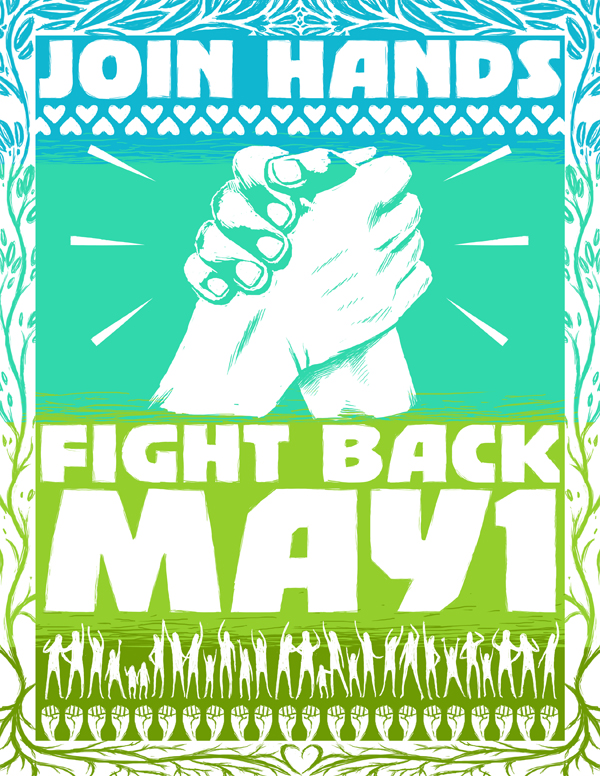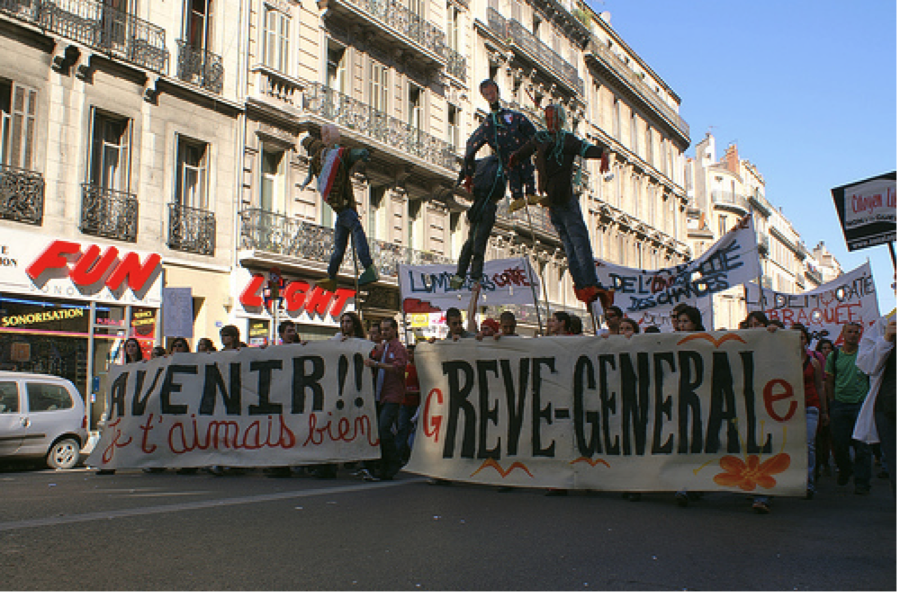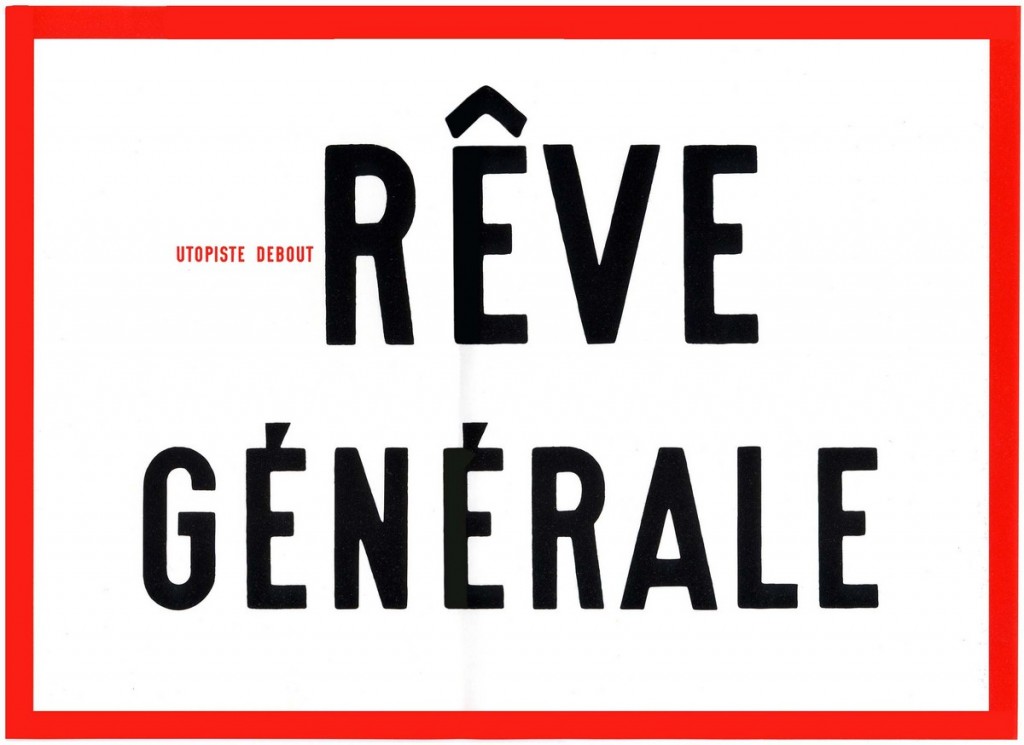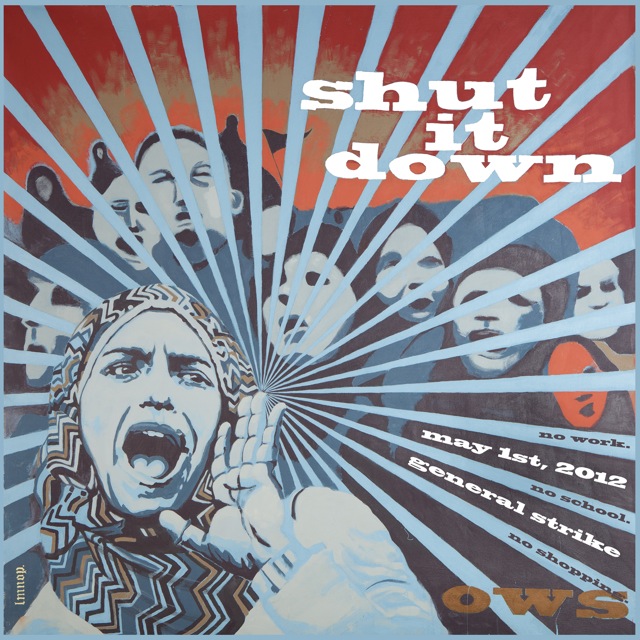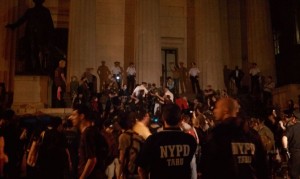Yesterday I wrote about a sense that Occupy was under triple attack from academia, the police and the Law. There were a good deal of mostly hostile responses on Facebook. While I don’t agree with most of them, as you’ll see, I thought it was fair to post them in the interests of transparency. They are long but all the more reason not to limit the audience.
There was a great deal of discussion about Jodi Dean’s New School keynote, its use of theory and her questioning of the organization of Occupy. The length of these comments suggest that a nerve was touched–or, to be fair, that I was wildly wrong.
Rhetorics aside, at the heart of it is a central issue: does the horizontal leader-less strategy of Occupy continue to be beneficial (we all agree it was so at first, I think) or not? I continue to think that the process is the energy of the movement. If leaders are appointed, Occupy becomes just another political party or a pressure group like Moveon.org. And it would just disappear into the fringe. Others seem to be repelled by the process. Late in the thread you’ll see a comment that Occupy’s current procedure is “kafkaesque,” which Dean agrees is “very well put.” So we disagree.
We also disagree on whether appointing leaders, whether in a party format or some other frame, would be a way to prevent some of the issues that have arisen. It’s not as if hierarchy has not been tried, I would say. Or you can call this the “tyranny of structurelessness.”
How you read these posts will most likely depend on your own view of Occupy: it is nonetheless clear that we can agree that we disagree. And that marks a shift, one that I for one do not welcome.
Comments were made on this excerpt from my post:
“[T[he academic left continues to ratchet up its critique of Occupy. Jodi Dean posted a talk on her website yesterday, which is at once supportive of the movement for creating a new political subject, and wants to see it regulated by the Holy Trinity of Badiou, Lacan and Zizek.”
Jodi Dean [JD}: ”The Holy Trinity”–not the kind of label that signals comradely engagement.”
Daniel Spaulding [DS]: Eh, but in the spirit of comradely engagement: I, too, am confused where Jodi’s piece leaves us. Given that there isn’t a credible vanguard party or anything resembling such, where does the structure come from? It strikes me as a little idealistic to say that what we need is more organization when the dominant subjective or affective structure on the left is currently stuck between anarchist laissez-faire and an emergent collectivity of class struggle. Of course horizontalism is the mirror-image of neoliberalism, I grant that – but we start from where we are, immanently, and look for the dialectic, no? So, do we all become Leninists or is there some other horizon?
JD: Well, people can recognize that the strength of the movement is in division and collectivity. This leads to questions about actions that make division more visible and strengthen collectivity. At the end of the piece, I suggest acknowledging leaders and making them accountable and subject to recall. I also mention diagonal and vertical structures, which suggests possibilities for delegating and combining that don’t involve “everybody”. Broached from a different vantage, if the movement learns from the disfunction that led to the collapse of Spokes and the GAs, and led to a great deal of frustration and ultimate dissolution of some groups, what should it learn? Maybe what it should learn that leaders will emerge, but they need to be accountable and recallable. Another example: since there was not a list of movement participants, there wasn’t a quorum for GA. So this made it sometimes feel like it couldn’t make decisions and sometimes made people who weren’t there feel like the decisions weren’t legitimate. Ultimately, though, my concerns are less with process than with the rhetorical and ideological self-understanding of the movement.
DS: Fair enough. I think those are good suggestions.
Nick Mirzoeff [NM]: If there are leaders subject to recall, how would these people be nominated? Who would determine those eligible to be nominated? Who would participate in the determining process? Who would vote? My worry was that by invoking a very widely sanctioned set of theorists these extremely difficult and practical questions were not being addressed. I think it would be almost impossible to organize Occupy like this and for it still to be Occupy, as I said later in the post.The issues with the GA and the Spokes were complicated: there were some disruptors, perhaps some infiltrators, a good deal of financial problems, burnout, cold, and so on. I don’t think the problem was a lack of direction. I don’t at all see an attitude of “wait and see if anything happens”–I see people working very hard to try and keep events moving. I think that any failures in that regard are more to do with the battering from the police than of organization or theory. If it is held to be taken for granted that horizontalidad is the mirror of neo-liberalism, then that in turn is not tremendously supportive/comradely of those who are trying to create a different movement.
DS: What I should have made clear is that horizontality being the mirror of neoliberalism isn’t, for me, a (or “the”) problem, because it’s only predictable that an anti-capitalist movement would, dialectically, approximate the form of the most current capitalism. Not to do so would be formalistic, i.e., sticking to an idea of correct organization at the expense of the real movement of history. So that’s my issue with Jodi and Badiou alike, although obviously the complaint is different with the latter. [Quoting NM] “I think it would be almost impossible to organize Occupy like this and for it still to be Occupy.” I read this as partly what Jodi wants: to make Occupy more like a party, specifically. Maybe I’m wrong about this. . .
NM: I understood the idea to be that Occupy becomes something like a political party as well. Without being uncomradely, I don’t support that and I just think that if that is the proposal it should be made directly and transparently. If the little joke at the expense of the master thinkers annoyed people, I’m sorry
JD: he specific procedural questions with which you begin can be answered in multiple ways. As you know, there isn’t one answer. Spokes was one attempt; it didn’t work out well. But there are other possibilities if people want to undertake them. One possibility: active working groups select a working head of the group to take responsibility for specific things. They also select delegates to other groups and to a broader assembly. Meetings could begin by asking whether people want those previously selected to continue to serve or not. A preliminary process might begin with the active people who put together the Spring Awakening and delegates to working groups to suggest a general structure and see what people think about it. Like I said, though, my primary interest isn’t procedural. On wait and see if anything happens: I’ve heard that in discussions of the general strike as well as the direction of the movement this spring. That some people are working very hard on some projects doesn’t mean that others aren’t saying, wait and see. On the police front: yes, this is demoralizing. But it’s not the whole of the movement. The frustrations in Facilitation and Housing, for example, can’t be attributed to the battering of the police. They can be attributed in part to problems with an ideology of leaderlessness that makes it difficult to work around toxic people.
I don’t understand what you mean when you say ‘invoking a widely sanctioned set of theorists’ these difficult and practical questions were not being addressed. If you are saying that I don’t provide a procedural blueprint–yes, that’s true. I didn’t claim to. I would be surprised to hear you say, though, that theory is irrelevant and we can’t learn from theoretical insights.
[To DS] my point is that structures need more than one dimension to be strong. Horizontality by itself becomes a fetish object/line and not an organization. If by more like a party you mean more organization and accountability, yes, definitely. Of course, there are different models of parties…
[To NM]: there isn’t anything undirect or untransparent in what I’m saying; I don’t use the word party in this talk because I don’t know what a new party form would like or whether that is the right term here.
Kailesjh Benengeli: leaderlessness can breed its own kafkaesqueness where if you don’t understand the tacit ideological rules for socializing you aren’t “in the know” or know the “right people” you’re functionally excluded.
JD: that’s very well put, clearer than I put it in the talk.
NM: Many things to say! I would like to put these comments into a post so that those who don’t see this FB can benefit. If the primary concern is not procedural, then it was not clear to me. I felt the criticism of the horizontal process was rather central: and I felt that as another attack, rather than as support, or constructive criticism. Again, my post was not about your paper so much as my feeling that academia has decided that it’s time to move on and give up on Occupy. Specifically: To what end are we to adopt a representative system? The energizing experience of Occupy has so much been about the chance to participate as an equal. More organization: presumably this means more effective organization as there is no shortage of meetings etc. It depends whether we feel that the goal is to intervene as directly as we can in the current system or to build an alternative, accepting the necessary time involved. The problems of disruptors, those with unmet needs and other issues that did much to complicate Housing and Facilitation are not, to my mind, primarily problems of leadership or it’s lack. The police did have something to do with that, as they sent disruptive people to Liberty from other locations. As I have written in other posts, the enormous issues these problems revealed surely show how much damage has been done by the neo-liberals.
On theory: of course, I think it can help. I am not clear how those affiliated with a very different process would be likely to be good resources to work through the issues that we have, as opposed to being citations to reinforce an existing desire for more leadership etc: which is exactly what I’m seeing here. For example, the explanation of the horizontal discussion process is standard Occupy procedure and, while I am not one of those who knows “the right people,” I have always felt able to participate if I wanted to do so. That is, the rules are explicit–in democratic centralism, that’s really not so much the case.
On another FB:
JD: Kinship? That seems like a weird leap to me. I don’t say not to strike on May 1 at all–I note the fact that there has been criticism of that plan (I don’t go into the criticisms but a significant one comes from women and the nature of childcare). It’s funny that you haven’t come across any activists frustrated over non-accountability in the movement, over the emphases on horizontality and leaderlessness; I have heard people invoke Jo Freeman’s “Tyranny of Structurelessness” with fair frequency. I’ve heard women criticize the domination of men in the movement, different people criticize the insidery-ness in the movement.
NM: I’ve talked a good deal about the place of women and child care in the movement in the Occupy 2012 project. It’s my understanding that Mutual Aid at Bryant Park and Union Square do intend to offer child services as does the Free University. Parents for Occupy Wall Street also have plans. However, there’s an absolute forest of state law when you offer formal child care. Getting city permission to offer child care would be, shall we say, unlikely.
Like this:
Like Loading...

